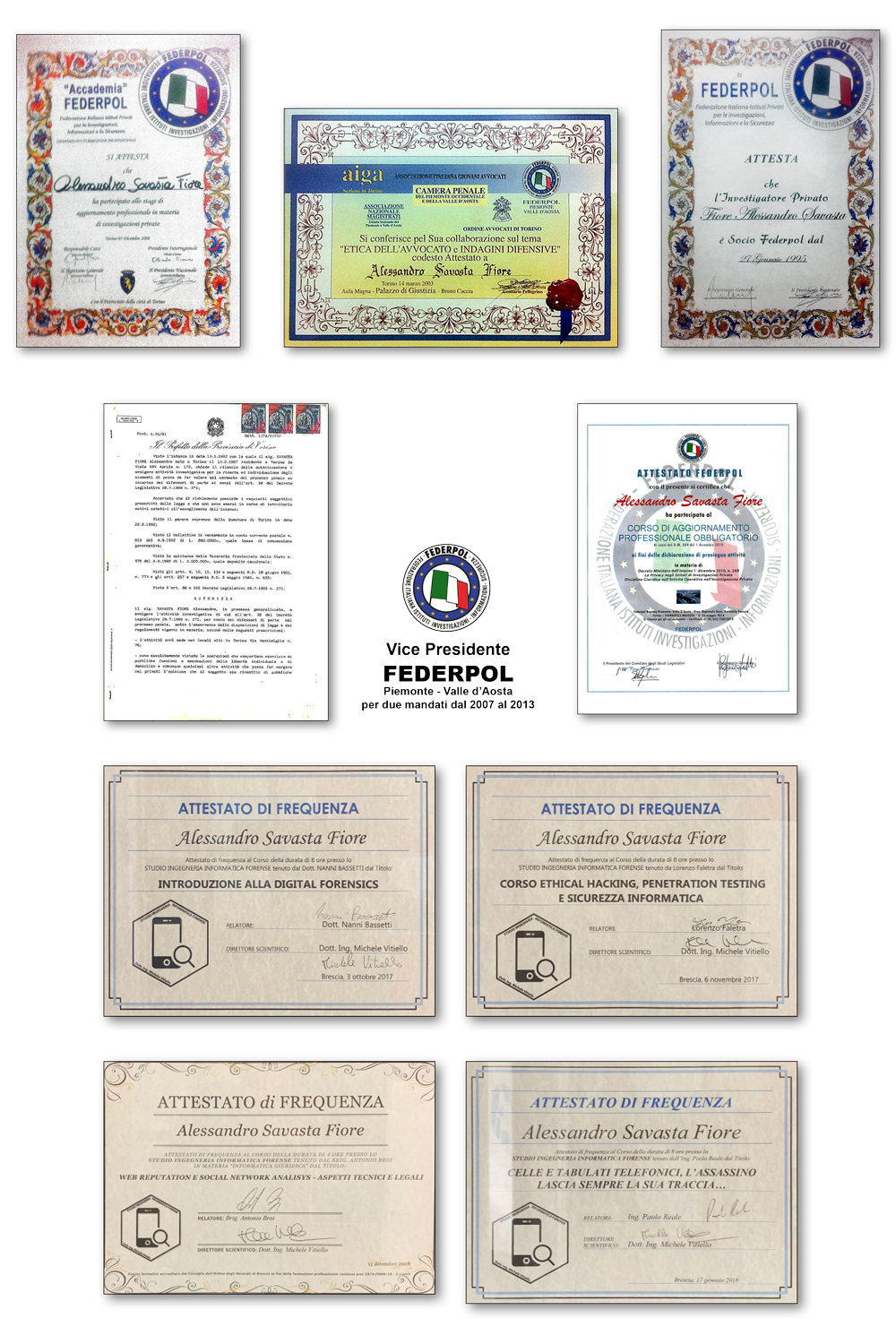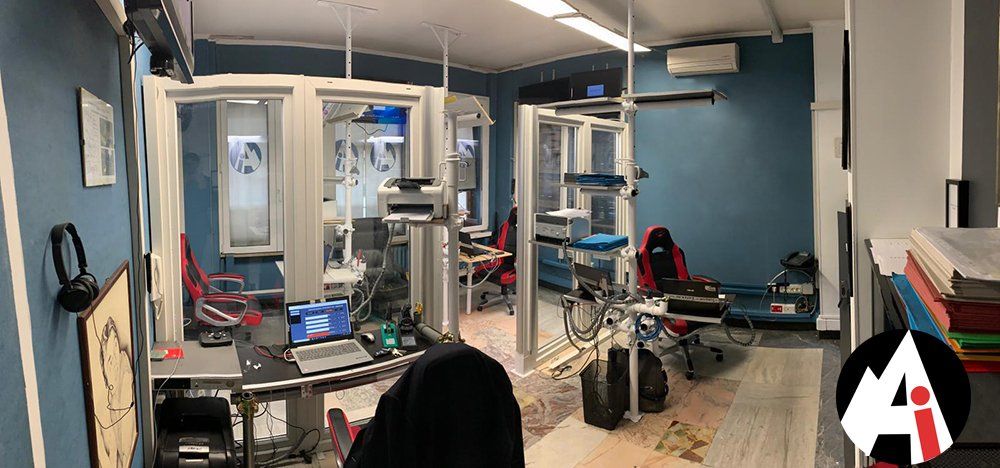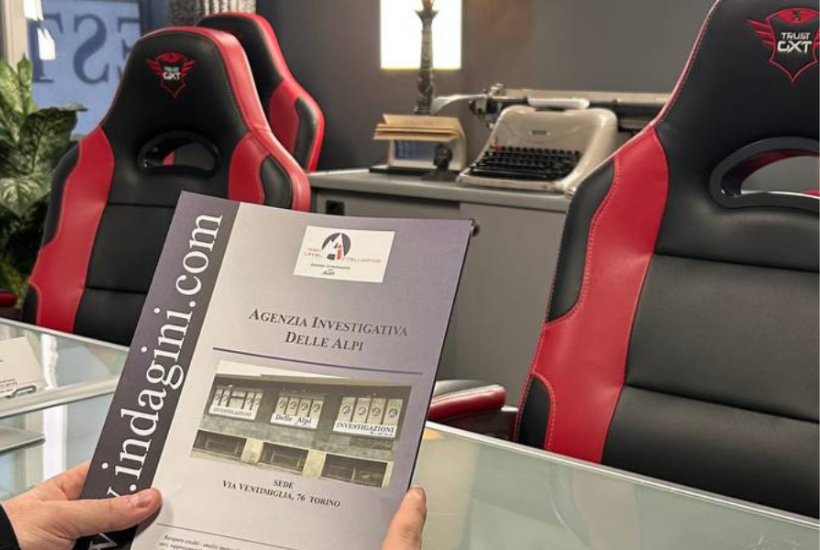Marital Infidelity Investigations
When it is possible to contact an Investigative Agency to acquire evidence to prove Marital Infidelity
Investigations for marital infidelity are carried out through investigative activities whose purpose is the search for useful evidence in order to document the infidelity. The Alpine Investigation Agency has been carrying out investigations into marital betrayal and infidelity since 1992. The investigative activities are coordinated and developed in the interest of the client, aware that in order to obtain a charge of negligence, marital infidelity must be demonstrated beyond any reasonable doubt.
With these assumptions, investigations are initiated, the outcome of which is always detailed in investigative reports that can be produced in court together, when requested, with the sworn testimony of our agents.
Find out more: Legally valid cheating tests

How to discover marital infidelity
How to recognize a betrayal? Often when we talk about marital infidelity and betrayal we are asked this question. Even if it is not possible to indicate a valid case study for all situations, our experience has allowed us to indicate some recurring points:
- Total cell phone blocking: cheaters often change their relationship with their cell phone. It can often be deactivated or silenced in the presence of the spouse. Sudden changes in mood towards all family members, with the tendency to respond with an unjustifiable degree of controversy or aggression. Changes in habits: using excuses, including work-related ones, and inexplicable increase in work commitments and increase in economic expenses incurred. Change in one's physical appearance with a tendency to improve aesthetic aspects through diet, unusual attention to one's physical appearance, etc. Decreased number of emotional relationships combined with indifference and sarcasm due to the failure of the relationship .
Often the partner can also demonstrate an absence of concern and intolerance for the progress of the relationship, even being argumentative towards the partner.
Find out more: Psychology of betrayal
Marital infidelity: violation of the obligation of fidelity
With marriage, the husband and wife acquire the same rights and assume the same duties. According to article 143 of the Civil Code: "From marriage derives the mutual obligation to faithfulness, moral and material assistance, collaboration in the interest of the family and cohabitation".
Infidelity constitutes a serious violation of marital duties, when the spouse demonstrates the violation of the obligation of fidelity, in fact, no other evidentiary burden weighs on him.
What happens if the betrayal happens online? Find out more and read the article, click here.

It is legitimate to contact an Investigation Agency in order to document your spouse's infidelity. The Court of Cassation also expressed its opinion on the matter with Sentence no. 11516 of 23 May 2014. In the specific case, at the time of separation, the husband requests that the separation take place at the wife's expense, in relation to the evidence of the betrayal committed by her in the previous months. The Court of Appeal accepts this theory and revokes the wife's maintenance allowance. Subsequently the woman appealed to the Court of Cassation, complaining in particular about the inability to use the investigative evidence. The Court of Cassation rejects this appeal, thus affirming the full legitimacy of the use of the investigative reports.
The evidence that the husband had brought to trial is to be considered decisive for the wife's adulterous responsibility. In fact, the evidence allowed that, in the judicial context, it was possible to effectively reconstruct the violation of the spouse's duty of loyalty.
Find out more: Separation with charge
The consequences of marital infidelity
Violation of duties deriving from marriage can lead to charges in separation. For example, marital infidelity can cause a crisis that makes continuing to live together intolerable. Pursuant to the Civil Code art. 151: "Separation can be requested when, even independently of the will of one or both spouses, events occur that make the continuation of cohabitation intolerable or cause serious damage to the education of the offspring."
The judge, pronouncing the separation, declares, where the circumstances exist and is requested, which of the spouses is responsible for the separation. The judge, pursuant to art. 156 of the Civil Code, establishes a maintenance allowance in favor of the spouse who is responsible for the separation. Finally, the spouse who is charged for the separation loses inheritance rights, which instead belong to the separated spouse without charge. The spouse who is the recipient of the charge is entitled to a lifetime allowance if, at the time of the opening of the will, he/she was the recipient of alimony from the deceased.
Investigations for Marital Infidelity
Always taking into consideration the objective that the client wants to achieve, for example ascertaining the spouse's marital infidelity/betrayal ascertained through:
- Verification of movements at agreed times, through static (so-called stalking) and dynamic (so-called shadowing) visual monitoring activities; Use of GPS satellite systems, as foreseen and authorized by Ministerial Decree 269 of 1 December 2010; At the end of the investigations, a Written report that can be produced in court accompanied by photographic evidence and videos; Documentation through films and/or photos testifying to any extramarital relationship; List of employees who carried out the investigation for a possible call as witnesses in court at the competent court.
Relying on an Investigative Agency means being able to demonstrate the presence of an extramarital relationship through documentation legally recognized by the Court and consequently making use of the rights to blame the spouse whose infidelity has been demonstrated.
Is it legal to steal your partner's cell phone to find out about cheating?
The Court of Cassation dealt with the case of a separated husband who had violently stolen his wife's cell phone. The man, convicted of robbery and personal injury, claimed to have obtained his spouse's implicit consent for access to the telephone, contradicting her version of events, which claimed the theft had been violent.
The Court ruled that violently stealing your partner's cell phone to obtain evidence of an affair constitutes the crime of robbery. Taking the partner's phone against his will in order to look for evidence of infidelity is considered an undue intrusion into the private sphere of the offended person, violating his right to sexual privacy, even if it occurs within the marital relationship.
Find out more: It is a crime to steal your partner's cell phone to discover the betrayal
Can forgiving infidelity influence any future cheating?
Sentence no. 25966 of 2 September 2022 of the Court of Cassation concerns the relationship between forgiveness and betrayal. The case involves a fashion designer who had forgiven his wife's multiple infidelities in the past. After further betrayals, these behaviors were deemed to have compromised the relationship, leading to its end. The Court attributed the separation to the wife due to subsequent infidelities, despite the initial forgiveness. This shows that the previous leniency for the betrayal does not exclude the complaint for the following ones, especially if frequent and continuous. The Court clarified that infidelity is serious and can make the marriage unsustainable, justifying the accusation of separation, unless there are other causes that have compromised the marital relationship.
Find out more: Forgiving a betrayal: what happens in case of other infidelities
Is it illegal to read your ex-spouse's correspondence?
Sentence no. 585/2014 of the Court of Cassation recognized the statute of limitations for the crime of theft of correspondence. However, it rejected an ex-wife's appeal for compensation for damage resulting from consulting her ex-partner's bank correspondence during the separation proceedings. The Court had previously clarified that the use of illegally obtained documents is justifiable only if it is the only means available to defend oneself and if the accused can demonstrate this.
Find out more: Is reading your ex-spouse's correspondence a crime?
Is it illegal to monitor your partner's SMS and email conversations?
The Sentence of the Court of Cassation n. 23035 of 10 June 2021 established that the action of clandestinely accessing your partner's email inbox to read messages constitutes two different crimes. In particular, this involves unauthorized access to a computer system (art. 615 ter penal code) and violation, theft and suppression of correspondence (art. 616 penal code). The ruling emphasizes that, even if the partner has previously provided the credentials, their use on a subsequent occasion and without authorization is considered a crime.
Find out more: Is spying on your partner's SMS and email conversations a crime?
Are screenshots acceptable as evidence of marital infidelity?
The Court of Ancona, with Sentence n. 1602/21, declared the insufficiency of the copies of the messages presented by the spouse to demonstrate the other's infidelity. In this specific case, the wife had provided screenshots of steamy conversations between her husband and his lover on Facebook. However, since he did not present the smartphone and did not clarify the provenance of the documentation, the court excluded the evidence in court. Furthermore, it was underlined that unauthorized access to computer systems, such as WhatsApp, constitutes a crime and is not justified by the right to defend oneself. Consequently, the violation of marital duties has not been demonstrated in this specific case.
Find out more: Screenshots: are they valid to prove Treason?
Our role in Stalking cases
The Court of Cassation, with decision no. 35778 of 30 August 2016, establishes that stalking occurs when the subject's behavior causes the victim anxiety and fear for their own safety. The sentence underlines that the crime can occur even without a clear change in the habits of the offended person; it is sufficient that the offending conduct generates such an emotional state in the same.
Furthermore, the Court of Cassation, with decision no. 21407 of 23 May 2016, states that acts of harassment represented by individual messages published on social networks such as Facebook are sufficient to constitute stalking. This implies that investigative agencies can use such evidence to ascertain behaviors falling within the scope of the case, providing evidence of legal and procedural relevance.
Find out more: Investigation Agency for Stalking cases
Contact us
Articles related to marital infidelity investigations:























